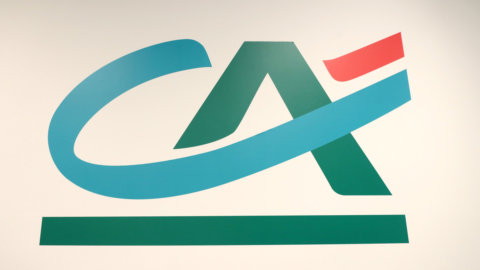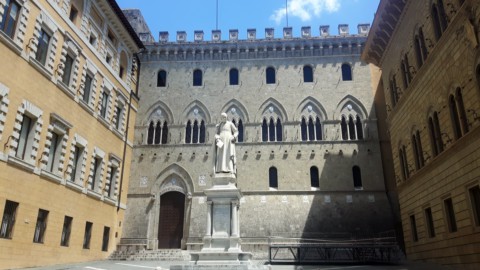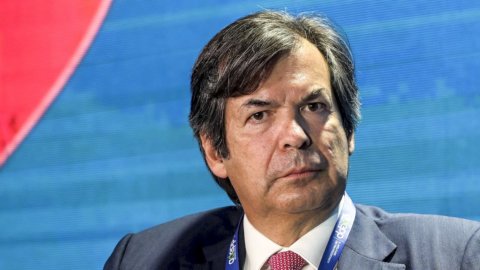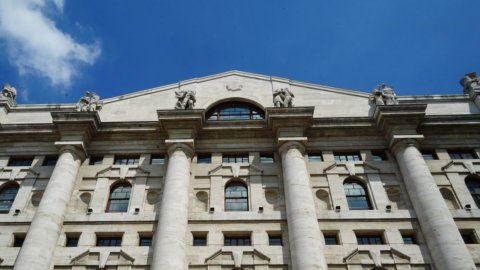After price boom in 2021 agricultural raw materials are still traveling at their highest levels. The hardships of the climate are added to the problems of logistics and the stakes of speculation
The hunchback coup, in a difficult moment for the Stock Exchanges, was made by those who, in the footsteps of "An armchair for two" (the unforgettable film by John Landis) bet on the orange ice cream in Florida: a few hours after the announcement of the drop in production, due to a plant disease, by the Ministry of Agriculture, futures on concentrated orange juice shot up. A juice bar in Manhattan this year will cost 50 percent more.
To drive up the price ofPalm oilHowever, it was the pandemic that forced the Indonesian government to raise export barriers to protect domestic consumption, while the shortage of migrant workers practically halved the harvest in Malaysia.
Much louder is the cry ofalarm from French pastry chefs. The association of French dairy producers has estimated the average price of industrial butter at 5.500 euros per ton, i.e. the 69% more compared to a year ago. And no better for skimmed milk powder. Here the reason lies in the new tastes of the Chinese. Butter purchases by Dragon consumers are growing unabated: imports have grown sixfold since 2010, 20% more than last year, also due to the government's invitation to "stock up" to deal with any anti-Covid lockdowns .
The causes are different, the alarm is common: food prices are rising almost everywhere on the planet, due to the consequences of the pandemic, as well as logistics problems. Or, even more serious, the soaring transport costs, given the increase in energy. The result is that the index elaborated by the FAO recorded an increase in the prices of the basket of essential goods in the order of 21% last year. Production problems but to make the situation worse, explained the chief economist Arif Husain, logistics contributes: thethe transport cost has grown four times.
Even soft commodities thus contribute to the flare up of inflation. At the origin there are various factors. The climate, first of all. This is the case for sugar, which rose sharply last year due to the frosts in Brazil, but is now falling to the lowest levels in six months, due to the rains and the good prospects for the harvest in Thailand. But let's not delude ourselves: the difficulties in finding containers and the increase in the Brazilian real are holding back the descent.
More or less what is happening to cereals. After a difficult 2021 between floods in the Midwest and drought in Canada the price of cereals remains at the top in a context of global shortage of higher quality wheat. Corn also goes up, as does sorghum. Or rice, whose prices rose by 3% in January alone. But there is an unknown factor: a third of world production goes fromRussia/Ukraine axis, at risk today. And a decline in that supply could lead to sharp increases, especially in the Middle East, as happened in 2011 during the Arab Spring.
Even for Europe, the forecast is for a significant increase for pasta and bread on the shelf.
Finally, under pressure, i meat prices (+17,3% compared to a year ago). The increase in Chinese demand, the formidable driver of the increase in consumption in the last decade, is slowing down, but Brazil (even with the environmental costs inflicted on the Amazon) and Australia are struggling to increase supply.
In short, nutrition, the protagonist of a leap over 40% in one year, it has contributed significantly to the growth of inequality between rich and poor, both internationally and in individual countries. In 2022 it could be better, judging by the progress of the harvests in the southern hemisphere. But with one exception: the coffee. The real "black gold", after reaching a 76 percent increase in 2021, opened the year with a 25 percent increase in Arabica quality. But also the Robusta produced in Vietnam is at a peak.
Meanwhile, top meteorologists are scrutinizing satellite images to identify any frosts in the Brazilian hinterland. Meanwhile, writes the Wall Street Journal, warehouses controlled by hedge funds are crammed waiting to unload the goods on the market in case of crop problems. Between oranges and cups of coffee, the great speculation of the season passes for breakfast.





